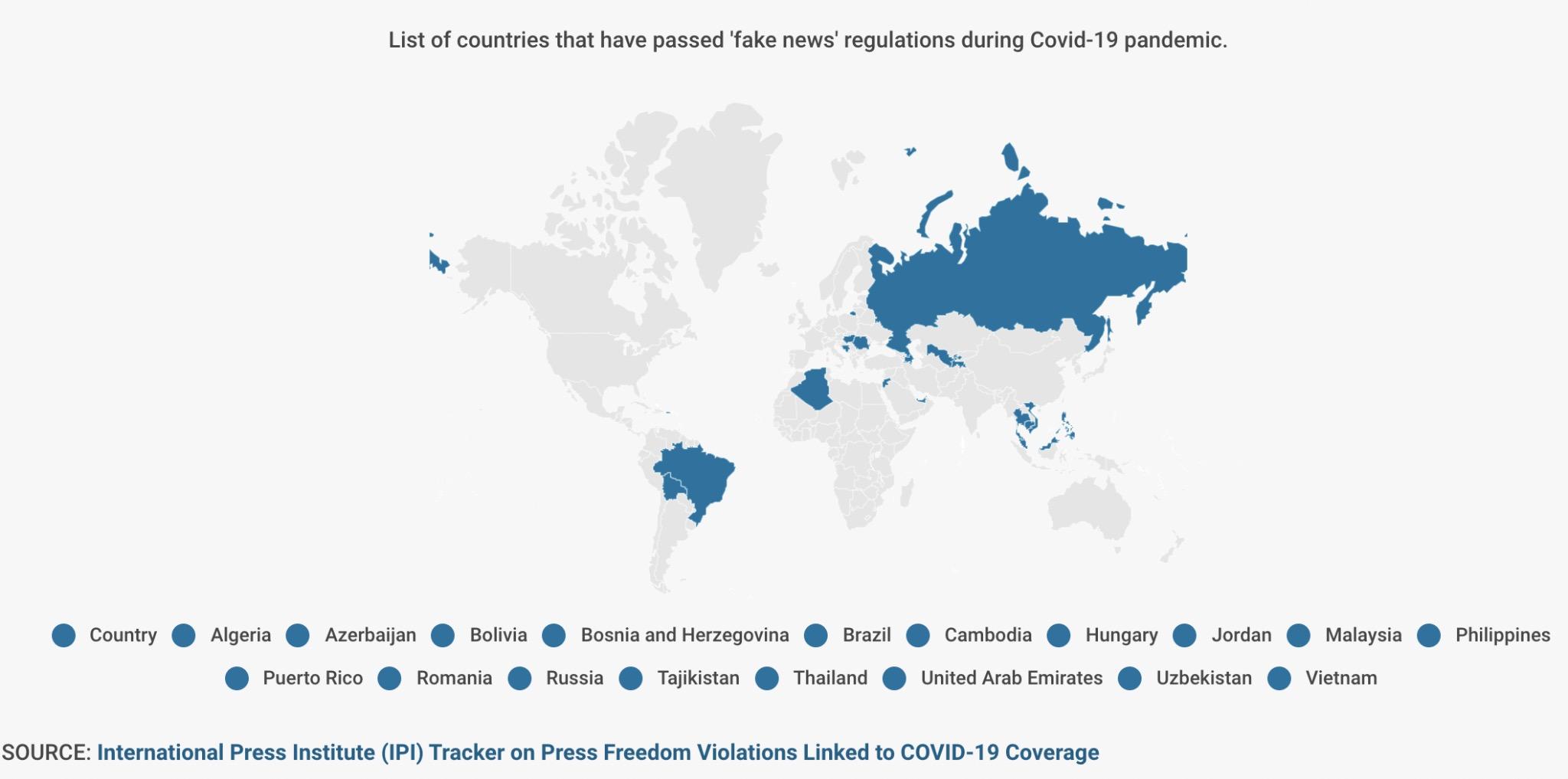
4 minute read
Global to Local Influence
Technology-enabled disinformation and misleading information production and spread became so prevalent during the global pandemic that in March 2020 the World Health Organization published a definition for the portmanteau “infodemic,” originally coined by David Rothkopf in 2003, to describe medical misinformation and on a global scale. Throughout the pandemic, most countries saw a proliferation of misinformation and disinformation about the novel coronavirus, with spikes in interest in conspiracy theories, as demonstrated by a few new infodemiological studies including one that focused on conspiracy theories and Google searches, with no direct findings for impact. It was also clear throughout the pandemic that state actors were developing and spreading disinformation related to the origins of the coronavirus.
In its report, “Hijacking Our Heroes: Exploiting Veterans Through Disinformation on Social Media,” on December 16, 2020, the House Committee on Veteran’s Affairs explored internet protocol (IP) spoofing60 , the spread of memes, and other technical methods of disinformation campaigns. It also noted, “Russia and Iran are the most prominent state actors in this context, but recent work has identified additional state actors, such as China and Saudi Arabia, using information operations to target
Figure 3 A Domestic Crisis
60 IP spoofing is when an IP packet address is forged to hide the identity of a sender, or impersonate another computer, and is usually used by bad actors to conduct DDOS attacks.
communities and topics of interest.” As it described the Senate Select Committee on Intelligence report, the House report switched again from disinformation to misinformation, “The Senate Report sheds light on the broader issues of misinformation campaigns and predatory schemes targeting veterans presented in a report prepared by the Vietnam Veterans of America (VVA).”
On May 12, 2021, The Senate Foreign Relations Committee held a hearing on “Covid-19 and the U.S. International Response,” where two witnesses from the State Department and United States Agency for International Development (USAID) outlined how authoritarian regimes were responding to the information crisis in the midst of the pandemic, stating “public health responses to COVID–19 are critical, they have also been exploited by authoritarian governments to violate and abuse human rights, engage in inappropriate or excessive monitoring of citizens, and to enable disinformation and hate speech. In particular, these responses have negatively affected freedom of peaceful assembly and freedom of expression.”
During the hearing Senator Chris Coons (D-DE) asked several pointed questions about how to counter disinformation, and the State Department official noted that the disinformation narratives pushed by the People’s Republic of China and Russia since the beginning of the pandemic were being closely monitored and shared with global partners to drive coordinated responses to it. The hearing and supporting documents, to its credit, included the word “misinformation” only three times, and otherwise both the witnesses and the Senators focused exclusively on disinformation.
As the terms misinformation and disinformation merge or become confused for each other, and as false information proliferates, there has been a push in the United States and across the globe to move away from a targeted effort to tackle disinformation and toward a broader effort to address information integrity and “fake news”. In 2020, 17 countries passed or tightened laws on misinformation and “fake news,” primarily in authoritarian states like Russia, the Philippines and Nicaragua (See Figure 3).61
61 “Censorious governments are abusing fake news laws,” The Economist, February 11, 2021. https://www. economist.com/international/2021/02/11/censorious-governments-are-abusing-fake-news-laws
In the United States, as massive metal and cement fences and U.S. troops circled the U.S. Capitol complex, Congress, reeling from the attacks on the Capitol on January 6th, focused on misinformation and disinformation from yet another perspective. Several committees and members sought to determine how false information online could have contributed to the deadly events that day, and how and where domestic violent extremism spread. To a lesser extent, Congress explored the possibility of foreign and domestic influence operations in stoking the violence. Ten days after the attacks, the Chairs of the House Select Committee on Intelligence and the Chair of the House Committee on Homeland Security asked the Director of the FBI, the Acting Director of the National Counterterrorism Center, the Acting Undersecretary for Intelligence Analysis at the Department of Homeland Security, and the Director of National Intelligence for details on the events of that day, with the purpose of remedying any gaps in legislation or policy. In the letter, they asked, “whether the insurrection had any nexus to foreign influence or misinformation efforts.”62
By March 2021, the House was holding hearings on state and local government responses to domestic extremism. Additionally. Congress moved to evaluate the events more formally and to bolster the institutional security organizations. One day after it established the January 6th Commission to investigate the causes of the attacks, the House of Representatives passed a $1.9 billion U.S. Capitol Security bill that included a new rapid response team to respond to future attacks. It is not clear if that entity will be tasked with countering misinformation and disinformation influence operations directed at Congress.
62 January 16, 2021. Congressional letter to the heads of the FBI, NCTC, DHS, and DNI on the January 6 attacks. https://intelligence.house.gov/uploadedfiles/20210116_hpsci_chs_hjc_cor_letter_to_fbi_dhs_ nctc__odni_on_capitol_insurrection.pdf





